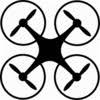
FlytBase
Founded Year
2013Stage
Incubator/Accelerator - II | AliveRevenue
$0000Mosaic Score The Mosaic Score is an algorithm that measures the overall financial health and market potential of private companies.
-4 points in the past 30 days
About FlytBase
FlytBase develops enterprise drone autonomy software platforms within the drone technology industry. The company offers services that facilitate automated drone operations for various commercial applications such as security, inspections, and emergency response. Its solutions aim to work with existing enterprise systems, providing drone-in-a-box solutions that can be controlled remotely. FlytBase was formerly known as NavStik Labs. It was founded in 2013 and is based in San Jose, California.
Loading...
Loading...
Expert Collections containing FlytBase
Expert Collections are analyst-curated lists that highlight the companies you need to know in the most important technology spaces.
FlytBase is included in 2 Expert Collections, including Robotics.
Robotics
2,716 items
This collection includes startups developing autonomous ground robots, unmanned aerial vehicles, robotic arms, and underwater drones, among other robotic systems. This collection also includes companies developing operating systems and vision modules for robots.
Aerospace & Space Tech
4,861 items
Latest FlytBase News
Sep 5, 2025
DRONELIFE September 5, 2025 The Commercial UAV Expo , held in Las Vegas from September 2–4, 2025, brought together global leaders in drone technology to discuss the rapid evolution of the industry. One of the most compelling sessions explored how autonomy, artificial intelligence (AI), and innovation are reshaping the role of drone operators and transforming the way organizations deploy drone technology at scale. A decade ago, drone operations relied heavily on skilled pilots with hands-on flying expertise. Today, panelists agreed, those roles are shifting toward system management, data interpretation, and strategic oversight. “We’re past the innovation stage, where people are testing our products,” said Adrien Briod, Co-Founder and CTO of Flyability. “Now we’re in the stage where people are using our products to do their jobs every day.” Nitin Gupta, CEO of FlytBase, described this transition as a move from piloting to problem-solving. “Drones should be invisible – we shouldn’t be worried about how the drone will fly, we should be worried about the job,” he explained. This shift places greater emphasis on business impact rather than technical operation. Building Scalable and Sustainable Operations Scaling drone programs requires more than just reliable aircraft. The discussion emphasized the importance of user-friendly systems, supportive ecosystems, and strong customer relationships. Armin Ambuehl, CTO of Wingtra, noted that “for large organizations, transferring knowledge and onboarding staff becomes a big problem. The easier you make it from a hardware standpoint, the better it is for your customers.” From a utility perspective, Ameren’s James Pierce emphasized the value of collaboration in product development. “We want to test out technology before we buy it – and we want to potentially have a part in the development of that product, so that we can help shape that development for the utility industry.” Panelists also pointed out that drone adoption extends beyond equipment. Service providers, training programs, and ongoing support remain critical to long-term success. As Briod explained, “at the end of the day, they provide the solution… and I think that’s going to remain the case for some time.” AI as an Industry Catalyst for the Future of the Drone Industry AI emerged as a central theme of the future of the drone industry, with panelists highlighting its transformative potential. Bill Irby, CEO of AgEagle Aerial Systems, emphasized flexibility in facing the unknown: “AI is going to have a huge impact on this. We need to be flexible, because we don’t know how yet.” Gupta explained that the easiest AI applications focus on data analysis, which represent “low-hanging fruit.” More complex applications, such as physical-world interactions, will require additional development and regulatory adaptation. Briod added that while AI is powerful, it cannot replace human judgment in safety-critical contexts. “People aren’t going to say it’s OK that AI says that bridge is now safe, or that ship is ready to go back to sea. So we’re developing systems that keep the human in the center of those decisions, but they have super powers.” AI’s role in advancing one-to-many operations, enhancing safety, and standardizing practices could accelerate the industry’s growth, provided both technology and trust evolve in tandem. Bridging Regulation, Trust, and Technology The conversation also touched on the interplay between technological capability and regulatory frameworks. Ambuehl reminded attendees that regulators are not always aligned with industry’s vision of operator roles shifting from pilots to analysts or managers. Panelists stressed the need for pragmatic approaches while remaining visionary. Gupta compared the conversation to the early skepticism around autonomous cars, which now share the road with human-driven vehicles in major cities. Building trust in regulators, in customers, and in the broader public, was identified as essential. As panel moderator Kaitlyn Albertoli, CEO of Buzz Solutions, highlighted, the future of drone operations will require careful management of both technological potential and societal expectations. Preparing the Workforce of Tomorrow As autonomy and AI continue to evolve, workforce development is becoming a top priority. Training now focuses less on piloting and more on analyzing data, managing systems, and solving business challenges. Panelists envisioned a future where AI agents support operators, enabling staff to focus on higher-level problem-solving. “What differentiates us is to be able to think. To sit down and think about a problem and what the boundaries are,” Ambuehl said. This transition underscores the need for comprehensive training, strong support systems, and education about both capabilities and limitations. As Briod concluded, “the North Star for product development is ‘Don’t make people think.’ However, we have to also educate the market about the capabilities and the value that they can get.” The drone industry is entering a new phase where AI, autonomy, and innovation redefine the role of the operator and the value of drone technology. While challenges remain in regulation, trust, and workforce readiness, the potential for drones to transform industries is clearer than ever. Read more:
FlytBase Frequently Asked Questions (FAQ)
When was FlytBase founded?
FlytBase was founded in 2013.
Where is FlytBase's headquarters?
FlytBase's headquarters is located at Baner Road, 701, Amar Paradigm, Baner, San Jose.
What is FlytBase's latest funding round?
FlytBase's latest funding round is Incubator/Accelerator - II.
Who are the investors of FlytBase?
Investors of FlytBase include Plug and Play, Lavni Ventures, Nippon Telegraph and Telephone, Cisco, GenNext Ventures and 5 more.
Who are FlytBase's competitors?
Competitors of FlytBase include Vyorius and 8 more.
Loading...
Compare FlytBase to Competitors

Gather AI focuses on warehouse inventory management using drones and computer vision technology in the logistics industry. It provides data collection and insights for inventory intelligence, allowing visibility and control. It was formerly known as Nabla Ascent. It was founded in 2017 and is based in Pittsburgh, Pennsylvania.

DroneScan specializes in robotic inventory counting systems for the warehousing and logistics sector. The company offers an airborne data collection system that utilizes drones equipped with barcode and RFID scanning technology to efficiently and safely conduct stocktakes in large warehouses. DroneScan's solutions are designed to integrate with existing warehouse management systems and provide real-time feedback to operators. It was founded in 2014 and is based in Durban, South Africa.

Eyesee provides warehouse inventory management solutions for the logistics and manufacturing sectors. The company offers automated drones that scan barcodes and collect stock data within warehouses, which improves operational efficiency and data accuracy. Eyesee's drones operate within existing warehouse infrastructures, offering a solution for inventory processes without requiring additional fixed installations. It was founded in 2017 and is based in Grenoble, France.

Corvus Robotics specializes in the development of autonomous drones for inventory management within the warehousing and logistics sectors. Its primary offerings include unmanned drones that autonomously navigate warehouses to scan pallet labels and provide inventory data, as well as software solutions that analyze and optimize warehouse inventory. Corvus Robotics' products are designed to serve industries such as third-party logistics (3PL), manufacturing, retail, and distribution, as well as accounting and consulting firms seeking efficiency in inventory management. It was founded in 2017 and is based in Boston, Massachusetts.

Intelligent Flying Machines specializes in artificial intelligence solutions for the logistics sector, focusing on warehouse operations. The company offers a Warehouse Operating System that includes features for visibility, safety, and productivity within warehouse environments. Its platform provides monitoring, load validation, and labor management tools for warehouse performance. It is based in Chicago, Illinois.

Auterion specializes in the development of an operating system for autonomous robots within the field of autonomous computing. The company offers a suite of software solutions that manage, control, and power autonomous fleets, as well as providing mission planning and real-time data processing capabilities. Auterion's products are primarily utilized by sectors such as public safety, agriculture, energy, and government services. It was founded in 2017 and is based in Arlington, Virginia.
Loading...
